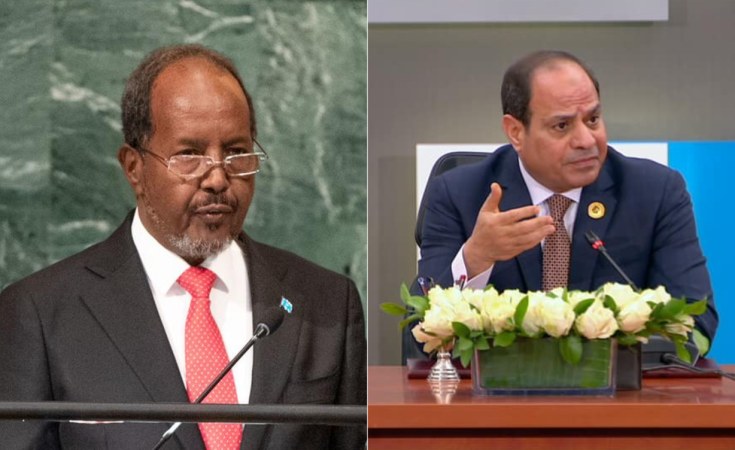Egypt has delivered its first military aid to Somalia in over four decades, as confirmed by three diplomatic and Somali government sources. This move, which took place on Tuesday, is poised to escalate existing tensions between Somalia, Egypt, and Ethiopia, particularly in light of a recent controversial agreement between Ethiopia and the breakaway region of Somaliland.
The relationship between Egypt and Somalia has strengthened markedly this year, especially after Ethiopia signed a preliminary deal allowing Somaliland to lease coastal land in exchange for potential recognition of its independence from Somalia. This agreement has been met with fierce opposition from the Mogadishu government, which views it as a direct assault on its sovereignty. Somali officials have vowed to thwart the deal by all means necessary, raising the stakes in the already volatile region.
Egypt, having been at odds with Ethiopia for years over the construction of a vast hydroelectric dam on the Nile's headwaters, has sharply condemned the Somaliland deal. Earlier this month, Egypt signed a security pact with the Somali government and offered to send troops for a new peacekeeping mission aimed at stabilizing Somalia.
The situation has become further complicated by Somalia's threats to expel up to 10,000 Ethiopian troops currently stationed in the country as part of a peacekeeping mission and bilateral agreements to combat the militant group al-Shabaab. This potential expulsion hinges on the cancellation of the Ethiopia-Somaliland deal, which Somalia sees as a direct challenge to its territorial integrity.
On Tuesday morning, two Egyptian military planes arrived at Mogadishu airport, carrying weapons and ammunition, according to two diplomats and a senior Somali official who spoke on condition of anonymity. A video verified by Reuters showed the planes on the tarmac, marking a historic moment in Egypt-Somalia relations.
One diplomat cautioned that Somalia is "playing with fire" by importing Egyptian arms, which could exacerbate tensions with Ethiopia. The foreign ministries of Somalia and Egypt, as well as a spokesperson for the Ethiopian government, did not respond to requests for comment regarding the military aid or the broader implications of the Somaliland agreement.
Egypt's commitment to a new peacekeeping mission, to be launched next year in Somalia, was announced in an African Union communiqué earlier this month. However, Cairo has yet to publicly comment on its military support or the potential deployment of troops.
Analysts warn that if Egyptian troops are deployed along the Ethiopian border, it could create a precarious situation, potentially leading to direct confrontation between the two nations. Rashid Abdi, an analyst at the Sahan Research think-tank, noted, "The threat of a direct shooting war is low, but a proxy conflict is possible."
In an effort to mediate the tensions, Turkey has hosted two rounds of indirect talks between Somalia and Ethiopia regarding the Somaliland deal since July, with a third round expected next month. Landlocked Ethiopia has expressed a pressing need for access to the sea, while Mogadishu maintains that Somaliland--despite its practical autonomy for over 30 years--remains an integral part of Somalia.


